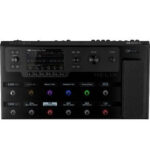The world of bass guitars offers a vast landscape of instruments, and for many aspiring and seasoned players, the Squier Jazz Bass Guitar stands out as a popular and accessible choice. Often seen as the gateway to the iconic Fender Jazz Bass, Squiers offer a compelling entry point, but questions about their quality compared to their Fender counterparts inevitably arise. Like their Fender siblings made in Mexico, Korea, Indonesia, or the USA, Squier Jazz Bass guitars can exhibit variations in quality across different series and even within the same production line. While generalizations exist, the reality is more nuanced, requiring a closer look at what truly defines a “good” Squier Jazz Bass and how it stacks up against more expensive instruments.
One common observation among bass players is that quality consistency tends to improve as you ascend the price ladder within both Squier and Fender ranges. This isn’t to say that every expensive bass is flawless, nor that every budget-friendly instrument is lacking. Instead, it suggests a higher probability of encountering superior craftsmanship and components in the pricier models. Regardless of the price point, a crucial first step for any new bass guitar, including a Squier Jazz Bass, is a professional setup. This adjustment ensures optimal playability by fine-tuning elements like string height, neck relief, and intonation.
The tangible differences between a Squier Jazz Bass and a higher-end Fender Jazz Bass often manifest in the quality of hardware. Fender instruments, particularly those made in the USA, typically feature upgraded components such as pickups, bridges, tuners, and electronics. With each step up in price within the Fender hierarchy, these components generally become more refined, contributing to enhanced tone, reliability, and overall performance. Pickups, while somewhat subjective in tonal preference, often represent a significant area of distinction, with premium Fender pickups generally offering a richer and more nuanced sound.
Beyond hardware, aspects like neck construction and fretwork also play a crucial role in the overall quality and playability of a bass guitar. While not universally guaranteed, higher-end Fender Jazz Basses, especially American-made models, often incorporate graphite reinforcement rods in the neck for increased stability. Furthermore, the precision of fretwork, along with the straightness and overall stability of the neck, tend to be more consistently refined in more expensive instruments. However, it’s important to acknowledge that exceptions exist. Stories of exceptional “Squier gems” and less-than-perfect MIA Fender basses circulate within the guitar community, underscoring the inherent variability in mass-produced instruments.
The widely repeated advice among experienced musicians, particularly when choosing a bass guitar, is to “play a LOAD of all sorts, and then pick out the ONE bass that does it for you.” This emphasizes the importance of personal connection and subjective feel. The ideal bass is the one that resonates with your individual playing style and sonic preferences. It’s about finding an instrument that feels comfortable in your hands and produces a sound that aligns with your musical vision.
For those with convenient access to a variety of music stores, this “play before you buy” approach is highly recommended. However, for many, especially those in more remote areas, online purchasing becomes a necessity. Distance selling regulations, such as those in the UK, can offer a degree of security, allowing buyers to order a bass online, try it at home, and return it if it doesn’t meet their expectations. While ordering online introduces an element of uncertainty, opting for a higher-priced range within Squier or Fender generally increases the likelihood of receiving a well-made instrument.
In conclusion, while generalizations about Squier Jazz Bass guitars and their Fender counterparts hold some truth, individual instrument quality can vary. Focusing on hardware specifications, neck construction, and, most importantly, personal playtesting whenever possible are key to finding a Squier Jazz Bass guitar that delivers both exceptional value and inspiring performance. Whether you’re a beginner seeking an affordable entry point or an experienced player looking for a reliable and modifiable instrument, the Squier Jazz Bass offers a compelling platform to explore the world of bass guitar playing.

